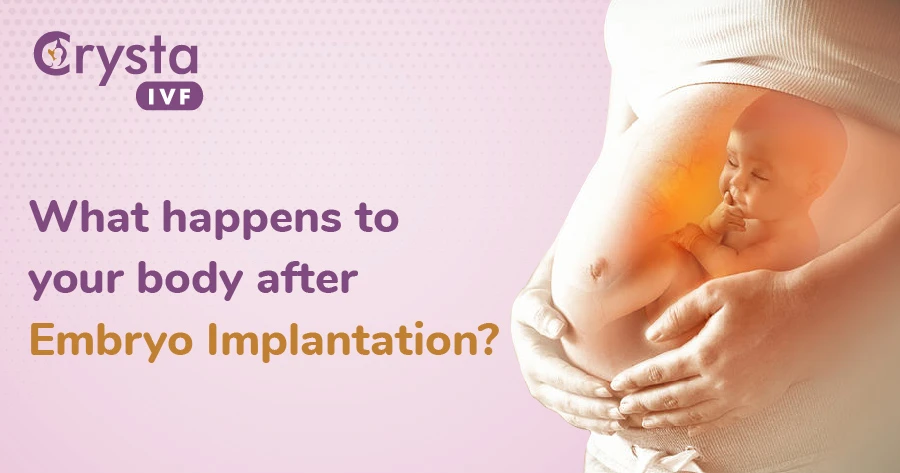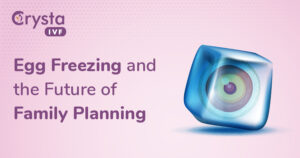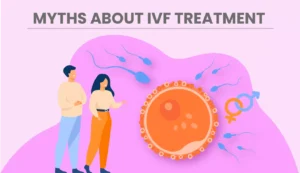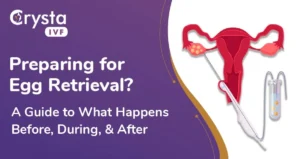Finally, if you have made the most exciting decision of your life to plan for a baby, either naturally or with the help of IVF, the chances are high that you will experience various phases of pregnancy, some in your favor and some not. The vital aspect is the changes in your body after embryo implantation.
So, if you are someone who is looking forward to planning for a healthy baby and has no idea where to start or what to expect, do not worry; this article carries all the significant information that you need to know about symptoms after embryo transfer that help to determine whether you are pregnant or not. However, before proceeding further, let’s talk about what implantation is.
Implantation: Understand the concept
Ideally, “implantation” is a term that is used in a condition where a fertilized egg or an embryo gets attached to the uterine lining. For couples who have undergone IVF treatment or have opted for the IVF method to conceive, the embryo is made outside the human body, or the egg is fertilized inside a modern laboratory under favorable conditions. The embryo is monitored to determine if it is healthy enough to be transferred into the uterine cavity, where it is expected to attach itself to develop into a fetus.
However, you should also know that implantation usually occurs 6 to 10 days after conception. Though this might seem unusually early, some of the signs of implantation can help you determine when to get a pregnancy test to get the most accurate results.
What changes do you expect in your body after Embryo Transfer?
You should know that being able to become a mother is a beautiful blessing every woman wants to experience once in a while. So, it should be your duty to remember that every pregnancy is unique, just as every human body is different. Therefore, it is better to try to understand your body more closely rather than comparing yourself to others to experience specific changes in your body. Some of us may have common pregnancy symptoms, while others may have few or none.
Though the first thing to experience and keep in mind is if you missed your period’s date by a week or more, it could be a sign that implantation has taken place and you are pregnant. Though it’s better to keep in mind that missing your period doesn’t always result in pregnancy, you can also miss your period due to PCOS, diabetes, an eating disorder, and certain medications. Still, if you believe you have been diagnosed with any of these diseases and you are not pregnant, then these are the other implantation symptoms that you should look out for, and they are.
Symptoms after Embryo Transfer Day by Day
Fatigue
There is a scientific explanation for pregnancy fatigue, a frequent symptom that can appear as early as one week after conception. Progesterone, the hormone that supports pregnancy maintenance and encourages the development of milk-producing glands in your breasts, is being produced by your body in excess. Amazingly, your body’s overall blood volume grows to nourish the developing fetus. So feeling exhausted after embryo implantation comes naturally.
Swollen and tender breasts and nipples
There is a high possibility that you will suffer from aching breasts and tender nipples after conception as a result of hormonal fluctuations in your body. Also, that is not only not enough; you may feel your breasts bigger and heavier than before. So, do not panic; it is normal to experience changes in your body.
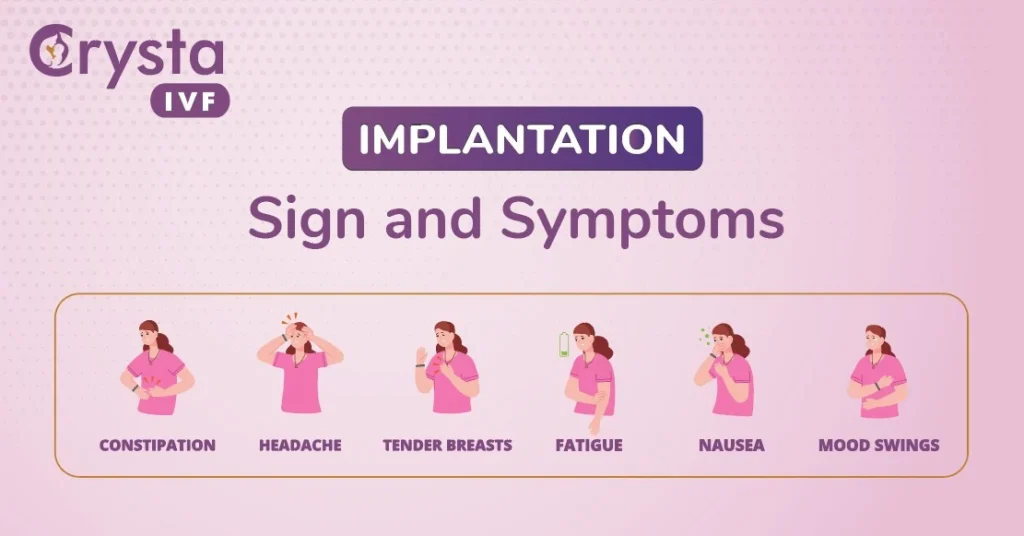
Headaches
During the first trimester, fluctuations in hormone levels and blood volume play a crucial role. It is common to get headaches, but they usually improve as your pregnancy progresses. Though they do not hurt your baby’s health, they can cause significant discomfort to you.
Nausea and vomiting
Often termed “morning sickness,” you can experience it at any time of the day or even at night. It is common to experience two to eight weeks after conception. Sometimes it stops, and sometimes you experience it throughout your pregnancy.
Mood swings
The hormonal changes in your body also cause intense mood swings, so if you feel exceptionally down on some days, just pamper yourself and surround yourself with the people that love you even when you feel extremely low.
Bloating
It is one of the more common signs of early pregnancy. In some cases, bloating occurs before you miss your first period. In pregnancy, the progesterone hormone increases and prepares the uterus. The excess hormone slows down digestion and causes abdominal bloating.
Nasal congestion
Specific hormonal changes during implantation can cause a stuffy nose. However, the higher possibility is that it occurs early in the pregnancy. Still, it is more common in the third trimester.
Constipation
when the hormonal levels in your body start to rise, you may begin to feel constipated. So, taking care of your diet and including more fruits and fiber is better.
Long story short, your body goes through many changes after or during embryo implantation, so you should know that it is common for every pregnant woman to feel this, whether she has conceived naturally or through IVF. To remain fit and healthy throughout your pregnancy journey. Stay in touch with your doctor and follow their advice carefully to avoid health complications.
Want to consult a fertility expert?
From a detailed analysis, we learned that implantation occurs when a fertilized egg attaches to your uterine wall 6 to 10 days after conception. Pregnancy is a beautiful journey that every woman cherishes, but it also comes with a bit of difficulty. So, if you have been trying for a baby, you first need to take a pregnancy test and have the confirmation. But it is also advised to consult your doctor, especially the fertility expert at the IVF clinic in Kolkata or your nearby city, such as Crysta IVF.

Working with advanced technology and ART methods, the fertility experts at Crysta IVF use a personalized approach to solve every patient’s fertility-related query. Also, to provide mental support and a smooth and reliable process, the IVF experts and their staff are always ready to go the extra mile for you so that you can enjoy your pregnancy journey as much as other women do.
Also Read: How Soon Can a Pregnancy Test Be Taken After Implantation?
People Also Asked Questions
Q. What are good signs after embryo transfer?
Good signs after embryo transfer include
- Light implantation bleeding,
- mild cramping
- breast tenderness.
These can indicate successful implantation and early pregnancy development. However, it’s important to note that every individual and pregnancy is unique, and it’s best to consult with a healthcare professional for a comprehensive assessment.
Q. What are the signs that IVF is working?
Signs that IVF may be working include a positive pregnancy test and the absence of menstruation after the embryo transfer. However, it’s important to remember that the only definitive confirmation of a successful IVF outcome can be provided by a medical professional through blood tests and ultrasound examinations.
Q. Can I travel after embryo transfer?
It is advisable to avoid long-distance or strenuous travel immediately after embryo transfer to provide optimal conditions for implantation and early pregnancy.
Q. Can I bend after embryo transfer?
It is generally recommended to avoid excessive bending and heavy lifting immediately after embryo transfer to minimize any potential risks or strain on the reproductive system.
Q. When do pregnancy symptoms start?
Pregnancy symptoms can start as early as one to two weeks after conception, with some women experiencing symptoms such as fatigue, breast tenderness, nausea, and missed periods. However, the timing and intensity of symptoms can vary from person to person.
Q. What not to eat after embryo transfer?
After embryo transfer, it is typically advised to avoid foods that may increase the risk of infection or uterine contractions, such as raw or undercooked seafood, unpasteurized dairy products, and excessive caffeine or alcohol. It’s best to consult with your healthcare provider for specific dietary recommendations based on your individual circumstances.
Q. Can I drink warm water after embryo transfer?
Drinking warm water after embryo transfer is generally safe and does not pose any known risks. However, it is advisable to consume fluids in moderation and maintain a balanced and healthy diet during this time.

